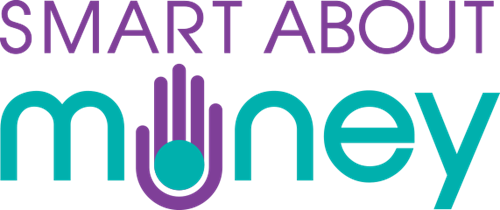Tax filing season opens on July 1 and most taxpayers will have less than four months until October 24 to file their return.
Last year some three million taxpayers were sent an auto-assessment by the South African Revenue Service (SARS) and this year is likely to be the same. If you receive an auto-assessment, you need to accept it or reject it and file the correct details within 40 days.
If you are a provisional taxpayer, you can start filing from July 1 and you have until January 23 next year to submit your return - not January 31 as in previous years.
SARS has not provided a deadline for paper returns and Donaldson Madungwe, senior tax consultant at Tax Consulting South Africa, says SARS is hoping that taxpayers have all moved to eFiling. If you are not registered on eFiling, you have to book an appointment at a SARS branch.
You do not need to file a tax return if you are a salary earner or pensioner earning an income from a single source from which Pay As You Earn (PAYE) tax is deducted, provided you earn less than R500 000 for the year and you do not have other taxable income such as rental income or capital gains. Read more: Do I need to file a tax return?
Should you accept an auto-assessment?
If you are required to fill in a tax return, you may be issued with an auto-assessment soon after the tax season opens. This assessment will be prepared from data submitted to SARS by your employer, bank, financial institutions, retirement annuity fund and medical scheme.
Madungwe says auto assessments are based on the previous year’s submissions. If you receive income from employment and your employer issues an IRP5 certificate, investment income for which IT3b certificates are generated, or you made a taxable capital gain or received a pension fund pay out that a financial institution will have reported to SARS, you are most likely to be auto-assessed.
Joon Chong, a partner at Webber Wentzel, says SARS will probably select for auto-assessment taxpayers who are not reporting other income such as rental income or filing provisional tax returns.
If you are sent an auto-assessment, you can either accept it or reject it. If you reject it, you must amend and file the auto-completed return within 40 days of receiving the auto-assessment.
Before you accept an auto-assessment, go through it diligently to be sure SARS has recorded information from all your tax certificates especially on the tax withheld, Madungwe says.
If you realise there is some missing information especially on your income, do not accept the assessment as you need to make the changes and disclosures required, he says.
If you have any deductions that SARS is not aware of you may want to amend the auto-assessment. Deductions could include wear and tear on computer equipment, home office expenses, donations to charities, travel expenses you want to claim against a travel allowance and medical expenses you did not claim from your medical scheme.
Chong says if your auto-assessment does not include medical expenses, travel claims, rental income, capital gains or donations that you need to declare, reject it and file your income tax return on the SARS eFiling site. Be prepared to upload the supporting documents, she warns.
Read more: What is the additional medical tax credit and who qualifies for it?
Fix it within 40 days
If you need to edit the assessment, you must submit the new details within 40 days. If you don't do anything, SARS will use its auto-assessment as an estimated assessment for you.
You won’t be able to object or appeal this estimated assessment. You can only correct it within 40 days of the end of the tax season and the return will then be regarded as late. SARS will apply an admin penalty for the late return. Penalties can of between R250 and R16 000 a month depending on the amount of tax you owe can be imposed for up to 35 months, Chong says. In addition, you may be charged interest on the outstanding tax, Chong says.
If you cannot file your return within 40 days of receiving an auto-assessment, you must apply for an extension.
Get ready
It is wise to get ready for tax season now, by gathering all the documents you need to file your return. You can expect to receive your IRP5/IT3a from your employer or retirement fund soon as these had to be filed by the end of May.
You can also likely to start receiving certificates that prove how much interest, capital gains and dividends you received or the contributions you made to a retirement annuity from financial institutions.
Also if your medical scheme has not sent you the tax certificate relating to your medical expenses and contributions, request it.
If anything on your certificates is incorrect, start engaging with the institution because the info supplied to SARS will also be incorrect, Chong says. It will have to be corrected and resubmitted to SARS, she says.
You can now view the information submitted by financial institutions on the efiling website. If you have correct certificates, however, you should be able to quickly check and accept or amend any auto-assessment.
No need to delay if you owe tax
Madungwe says if you owe SARS tax you will only need to pay what you owe after the tax filing season ends on October 24, regardless of when you accept an auto-assessment or file your return.
If you can make the payment immediately after the assessment is issued it will help avoid penalties in the event that the deadlines comes and you miss the payment by mistake, he advises.
Provisional taxpayers will need to pay any outstanding tax by January 31 next year.
However, if you are due a refund, it will be paid as soon after you accept the auto-assessment or file a return and receive an assessment, Madungwe says.



